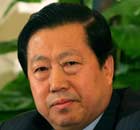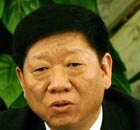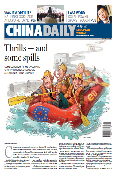NPC must be part of pay revision
Updated: 2010-11-11 08:24
(China Daily)
As the representative body of the public, the National People's Congress should play a role in the revision of civil servants' pay, because their salaries are paid from State revenue, says an article on Eastday's website. Excerpts:
The Ministry of Human Resources and Social Security plans to revise civil servants' pay and adjust the income distribution system in public institutions. This could end up in a pay rise for civil servants.
Considering the sustained economic growth, it is reasonable to increase civil servants' salaries. Earlier pay revisions were based on "inside investigation" without the participation of the public.
But the public has the right to know how much civil servants get paid and to what extent their salaries should be raised, because the officials get paid from State revenue which in turn comes from taxpayers.
In other words, taxpayers should play a role in determining civil servants' salaries.
And since the National People's Congress is the public's representative body in China, it should participate in the decision-making process of the revision. Moreover, that is the established practice in many countries.
Now that the revision process is on, it is more important to decide who will determine the percentage of increment the civil servants deserve than to argue about whether they deserve one at all.
(China Daily 11/11/2010 page9)
Paper's Digest

Chinese jet takes on Big 2
First large commercial plane set to ride on demand for aircraft as economy grows.
Super-CPU only for domestic eyes
Specials

Gaining ground
Doing business in china for westerners has come a long way, Peter batey says.

Safeguarding environment a priority
China continues to face mounting pressure to curb environmental degradation, despite progress in reducing pollution over the last five years, the environmental protection minister warned.

Employment to remain a continuing challenge
China's top labor official said the country will face a tough employment situation in the next five years.
